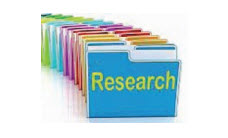In my last column, I provided a collection of book-related websites. This time, I’ve focused on an area near and dear to all our hearts—research. But not the kind we edit and publish in books, journals, and electronic media; rather, I’ve collected websites that are portals to all types of information. Some you may use for your work, others for your avocation, and maybe one or two just to pass the time learning about something new. May they be of value to you, however you may use them.
 Research Information, tagline: the essential link between publishers, librarians, and researchers, is a bimonthly printed full- color magazine produced by Europa Science Ltd, a UK-based company. Also published in electronic form, it is available at http://www.researchinformation.info/.
Research Information, tagline: the essential link between publishers, librarians, and researchers, is a bimonthly printed full- color magazine produced by Europa Science Ltd, a UK-based company. Also published in electronic form, it is available at http://www.researchinformation.info/.
University Press Scholarship Online offers 17,000+ titles in 28 subject areas. Aggregating scholarly content from leading university presses, UPSO offers an unparalleled research tool, making disparately published scholarship easily accessible, highly discoverable, and fully cross-searchable via a single online platform. Research that previously would have required a user to jump between a variety of books and disconnected websites can now be concentrated through the UPSO search engine. http://www.universitypressscholarship.com/.
 The Pew Internet & American Life Project is an initiative of the Pew Research Center, a nonprofit “fact tank” that provides information on the issues, attitudes, and trends shaping America and the world. The Pew Internet Project explores the impact of the Internet on children, families, communities, the work place, schools, health care, and civic/ political life. The Project is nonpartisan and takes no position on policy issues. Support for the Project is provided by The Pew Charitable Trusts. http://libraries.pewinternet.org/.
The Pew Internet & American Life Project is an initiative of the Pew Research Center, a nonprofit “fact tank” that provides information on the issues, attitudes, and trends shaping America and the world. The Pew Internet Project explores the impact of the Internet on children, families, communities, the work place, schools, health care, and civic/ political life. The Project is nonpartisan and takes no position on policy issues. Support for the Project is provided by The Pew Charitable Trusts. http://libraries.pewinternet.org/.
INFOdocket, housed by Library Journal, is compiled and edited by Gary Price and Shirl Kennedy. The site is free to access and is updated as often as possible during the week and at least once a day on the weekends. Before launching INFOdocket, Price and Kennedy were the founders and senior editors at ResourceShelf and DocuTicker for 10 years. FullTextReports. com is the sister site of INFOdocket. There you’ll find direct access to new and free full-text reports from think tanks, governments around the world, research institutes, and academia, as well as from other sources. http://www.infodocket.com/.
Mary Meeker of Kleiner Perkins Caufield Byers presented her Internet Trends report for 2014 at the Code Conference in California. Each year since 2001, KPCB has partnered with some of the best data analysts in the country to create a comprehensive report of rising Internet trends across all industries. This year, the presentation resulted in a 164-slide deck that you can read in its entirety at http://www.kpcb.com/internet-trends.
 Google site for searching US newspapers: http://news.google.com/newspapers. Check the page for this search engine as well, found at https://support.google.com/ news/answer/1638638?hl=en&rd=1.
Google site for searching US newspapers: http://news.google.com/newspapers. Check the page for this search engine as well, found at https://support.google.com/ news/answer/1638638?hl=en&rd=1.
 ArtBabble, a website showcasing highquality art-related video content from more than 60 museums and cultural institutions from around the world, is an energetic place to learn for everybody who loves and has an interest in art. It brings art content from different places and perspectives together, easily accessed and found. Created in 2009, the website was conceived, designed, programmed, and launched by a cross-departmental collection of individuals at the Indianapolis Museum of Art and is found at http://www.artbabble.org/.
ArtBabble, a website showcasing highquality art-related video content from more than 60 museums and cultural institutions from around the world, is an energetic place to learn for everybody who loves and has an interest in art. It brings art content from different places and perspectives together, easily accessed and found. Created in 2009, the website was conceived, designed, programmed, and launched by a cross-departmental collection of individuals at the Indianapolis Museum of Art and is found at http://www.artbabble.org/.
 National Geographic: Photography offers up the exquisite visual offerings created by National Geographic over the past 125 year. This corner of the NG website brings together the work of their many fine staff photographers, video-graphers, and community members who contribute to this expansive brocade. After creating a free login, visitors can start their journey through the site by looking over the Photo of the Day or the “Best of” slideshows that bring together highlights from past months. The “Editors’ Picks” area offers thematic collections. Finally, the site contains the “Featured Bios” area, which has details on some of the fine photographers profiled here, including Paul Nicklen, Joel Sartore, and Mark Thiessen. The site can be accessed at http://photography.nationalgeographic.com/photography/.
National Geographic: Photography offers up the exquisite visual offerings created by National Geographic over the past 125 year. This corner of the NG website brings together the work of their many fine staff photographers, video-graphers, and community members who contribute to this expansive brocade. After creating a free login, visitors can start their journey through the site by looking over the Photo of the Day or the “Best of” slideshows that bring together highlights from past months. The “Editors’ Picks” area offers thematic collections. Finally, the site contains the “Featured Bios” area, which has details on some of the fine photographers profiled here, including Paul Nicklen, Joel Sartore, and Mark Thiessen. The site can be accessed at http://photography.nationalgeographic.com/photography/.
Repositories of Primary Sources is a listing of more than 5,000 websites describing holdings of manuscripts, archives, rare books, historical photographs, and other primary sources for the research scholar. All links have been tested for correctness and appropriateness. Links added or revised within the last 30 days or so are marked (New). This research tool is accessed at http://www.uiweb.uidaho.edu/special-collections/Other.Repositories.html.
 From Phil Bradley’s website: “This is a collection of [more than] 200 different search engines in a variety of different subject areas—crucial search engines that you must know about, meta, multi, directory search engines, search engines that you can use to find out about social media material, video, sound, images, and so on.” There are 18 categories. The day I accessed the site there was a total of 359 items = search engines (96 recently added) across all the categories. http://www.philb.com/searchenginespearl.htm.
From Phil Bradley’s website: “This is a collection of [more than] 200 different search engines in a variety of different subject areas—crucial search engines that you must know about, meta, multi, directory search engines, search engines that you can use to find out about social media material, video, sound, images, and so on.” There are 18 categories. The day I accessed the site there was a total of 359 items = search engines (96 recently added) across all the categories. http://www.philb.com/searchenginespearl.htm.
*A person who indulges in and desires information gathering and interpretation. The term was introduced in 2006 by neuroscientists Irving Biederman and Edward Vessel.
